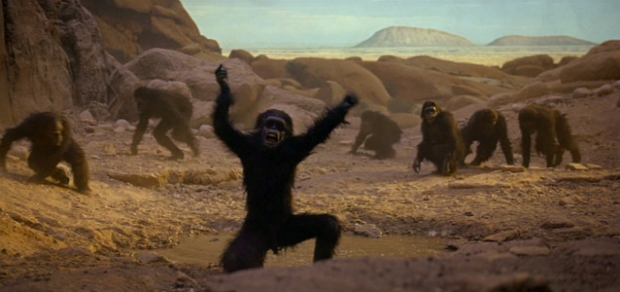
I am returning to this blog after
a hiatus of more than two years. I am
working on a book with the tentative title: Darwin and the Declaration of
Independence. My thesis is that contemporary
research in the evolution of human social, political, and moral behaviors
supports a natural right tradition that stretches from Aristotle and Plato,
through Locke and the American founders, to Lincoln and Martin Luther King, Jr.
In this post, I am going to list
some of the books and papers in contemporary biosocial science that I lean on
heavily. They constitute a library in what
I call biopolitical science.
First and foremost, Christopher
Boehm’s two magisterial works: Hierarchy in the Forest, and Moral
Origins. Boehm establishes that forager
societies were characterized by what he calls an egalitarian ethos. Every (male) member of the band in good
standing (not a free rider or a bully) enjoyed the protection of the group and
enjoyed more than less equally in whatever resources the group had at its
disposal and got the group’s protection against any member who tried to push
his weight around. Group decision making
was also egalitarian: each “citizen” gets his say and each abides by the consensus. Boehm argues that the sanctioning of bullies
and free riders (hungry but unwilling to contribute to the hunt) amounted to
social selection. Human moral emotions were
shaped by selection pressure as individuals internalized the egalitarian
ethos. For a shorter introduction, see
his paper “Egalitarian
Behavior and Reverse Dominance Hierarchy”.
Second, Michael Tomasello’s Why
We Cooperate is a pretty good introduction his work on the innate human
capacity for cooperation that distinguishes us from other social primates. Tomasello’s work frames Boehm’s, showing how
we got from individuals collaborating out of convenience to a species capable
of generating the concept of “we” and “our” good. For a shorter introduction, see his paper “Two
Steps in the Evolution of Human Cooperation”.
Third, Bernard Chapais’ Primeval
Kinship, a forceful argument that it was pair-bonding, stable relationships
between one male and two or more females, that transformed our early ancestors
from typical social apes into a network of related individuals including aunts,
uncles, and cousins. Unlike our nearest
relatives, the chimpanzees and bonobos, humans had a much better idea who their
fathers were and that opened up the network of family relations. When our ancestors began to recognize affinal
relationships (in-laws) the network of familial relationships expanded indefinitely. For a brief introduction, see “Monogamy,
strongly bonded groups, and the evolution of human social structure”.
Fourth, Richard Wrangham’s The
Goodness Paradox. Human beings are
the best of animals and the worst of animals.
We get along within our groups and commit atrocious violence against
other groups. Wrangham answers the old
question whether human beings are violent by nature or not with “yes.” He does so by distinguishing between reactive
violence (spontaneous irritation) and proactive violence (we could sneak up on
them and…). Most importantly, he invests
in the domestication syndrome, the theory that selection against reactive violence
produces a range of physical changes that present in human beings and other
domestic animals. We are the
self-domesticated species. See “Two types of aggression in human
evolution”.
These works, read together,
provide a foundation for political science and political theory that has so far
been sorely lacking in the discipline.
No comments:
Post a Comment